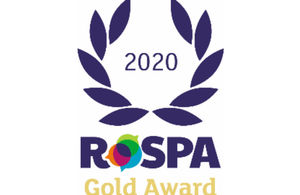Aurrigo makes breakthrough in driverless pods technology
A Coventry-based company has created 10 new jobs over the past year to meet rising demand across the world for the driverless pods it has developed with support from the Centre for Connected and Autonomous Vehicles (CCAV) and Innovate UK.
A division of the RDM Group dedicated to autonomous vehicles, Aurrigo now has annual sales of £4.2 million. It has customers in Australia, Canada, Finland, Singapore, and the US, and has recently supplied one of its ‘Pod Zeros’ to China. It predicts a further £6 million of orders before the end of 2020.
Aurrigo recently collaborated with researchers from the University of Warwick to demonstrate a major breakthrough in CAV technology, a successful demonstration of pods ‘swarming’ like birds and insects. This innovation is a key element of a CCAV-funded project called SWARM (Self-organising Wide area Autonomous vehicle Real-time Marshalling). It means that pods can follow each other without supervision, helping each other to drive and navigate through pedestrian areas around people.
Aurrigo is a key part of the UK’s growing CAV eco system and has contributed to 2 other CCAV funded projects.
T-CABS (Trumpington to Cambridge Autonomous Bus Service)
This project is a 30-month project in Cambridge which will create the UK’s first autonomous bus service.
Through T-CABS, Aurrigo has received a £2.54 million grant to build and trial a fleet of 6 self-driving shuttles with 10-15 seats to operate an out-of-hours service on a section of an existing guided busway. Public services start by the end of 2020.
INTACT (INnovative Testing of Autonomous Control Techniques)
A 24-month collaboration between Aurrigo and Warwick University researchers, the INTACT project has a total budget of £1.085 million.
The objective is to develop a 3D simulator, to enable design, testing and evaluation of a low-cost autonomous control system.
